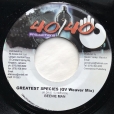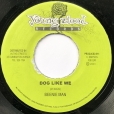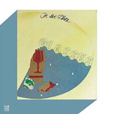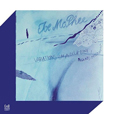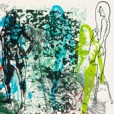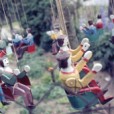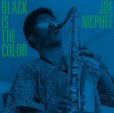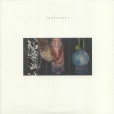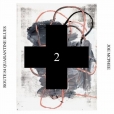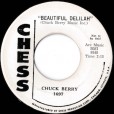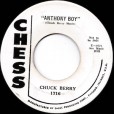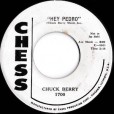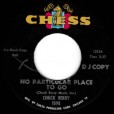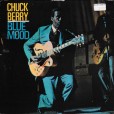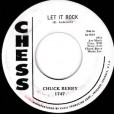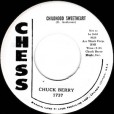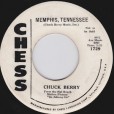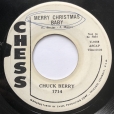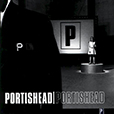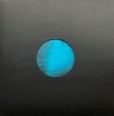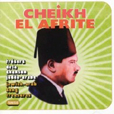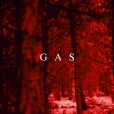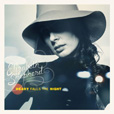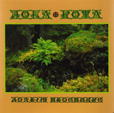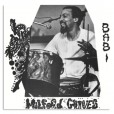Your basket is empty

Invigorating shots of spiritual jazz — the business, no sugar, no additives — in two versions from 1970, for tenor saxophone and space organ. Lovely artwork by Dick Higgins.
Fab.
‘Multi-track, multi-instrumental recordings — more compositional in nature than Sound On Sound — especially prized by the man himself. Over-dubbing builds and sculpts each piece, creating complete wind ensembles one track at a time. In 1974 and then again in a longer session in 1979, McPhee recorded himself in concise solo, duo, and tripartite self-communion, like a one-man-WSQ, his probing investigations and lyrical statements as incisive and insightful as those of his best-known recordings.’
‘Never-before-issued music from three very different settings in upstate New York, all recorded in the period running up to Nation Time.
‘First, from a year before, in the same hall at Vassar College, with soulful vibraphonist Ernie Bostic and a rhythm section of Tyrone Crabb and Bruce Thompson, both on Nation Time, performing a Trane-oriented set that included versions of Mongo Santamaria’s Afro Blue besides Naima, as well as McPhee-fave God Bless The Child. Deeply emotional and fiery playing with this unusual instrumentation — and it’s rare to find McPhee playing with a harmonically based instrument like vibes.
‘Also a quartet concert at a monastery in nearby New Windsor, with saxophonist Reggie Marks, playing a powerful combination of originals and the Patty Waters-associated traditional tune Black Is The Color.
‘Finally, three cuts document a more rough-and-tumble gig taped outdoors in the park at Poughkeepsie’s Lincoln Centre. A funky, bluesy, lowdown, explosive configuration, they feature vocals by one Octavius Graham, great drumming by Chico Hawkins, and Tyrone Crabb on electric bass.
‘This two-CD set has been lovingly transferred from original tapes in McPhee’s personal archives, and is augmented by newly discovered photographs of the concerts.
‘A spectacular deep dive into the pure magic of Mr. McPhee.’
The ‘little devil’ was born in Tunis in 1884 to a Libyan mother and Moroccan dad. The first half of the twentieth century was a golden era in Tunisian music; Cheikh El Afrite its most celebrated artist. As a youngster he became fluent in its mix of classical Arab-Andalous and Ottoman traditions with folk idioms like bedouin and other African melodies, fondo and fezzani, and the festive tripolitain music of Libya. Turning professional at eighteen, he was soon singing for the bey every Tuesday night, at his seaside palace in Hammam Lif. Later, his recordings made him star throughout the Maghreb.
Top-notch, funky, eclectic jazz singing.
‘The long-awaited first reissue of one of the most legendary albums in the history of free music. Recorded live in concert in 1976, when Graves’ trio with saxophonists Arthur Doyle and Hugh Glover was at the height of its powers, Bäbi is a testament to the absolutely unique approach the drummer had established for himself. He had reconfigured the drum kit, removing the second heads on all the drums and replacing the snare with two toms, which allowed him a much more nuanced sense of indirectness in his multi-directional adventures in time. The track Ba remains one of the most astonishing feats of percussion alchemy ever waxed, as funky as ten slap bassists and as free as an exploding grenade. Doyle and Glover are incendiary, too, inspired by Graves to new and shocking heights of achievement, their hoarse cries and whistling split-tones carried to thrilling plateaus on the energy of Graves’ hands and feet.
‘In 2017, Graves discovered a previously unknown tape in his archives featuring the same trio at its inception, in home recordings made seven years earlier in 1969. Graves pummels a huge gong while Glover plays an instrument that, after sounding like none ever known, turns out to be bass clarinet. Extreme music recorded up close and very hot, it is among the most searing sessions never heard. Until now.’
